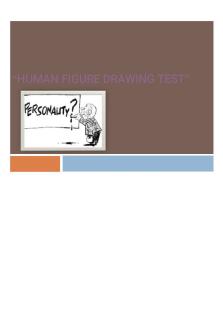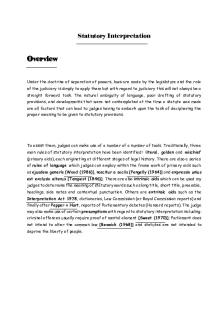My Life Styles Inventory Interpretation PDF

| Title | My Life Styles Inventory Interpretation |
|---|---|
| Course | Leadership and Organizational Behavior |
| Institution | DeVry University |
| Pages | 7 |
| File Size | 115.8 KB |
| File Type | |
| Total Downloads | 32 |
| Total Views | 154 |
Summary
LSI interpretation...
Description
Running head: LIFE STYLES INVENTORY
Life Styles Inventory Report Sandra Monse Keller Graduate School of management MGMT-570 Professor: Earl Levith Date July 12, 2018
My Life Styles Inventory Interpretation
1
LIFE STYLES INVENTORY
2
It is virtually impractical to determine who one will be in future without being conscious of his or her present situation. The information and insights that instigate personal development and growth are remotely located within us, thus making it critical to realize the void within so that the right steps can be taken to fill it. Taking the Life Styles Inventory (LSI) test has been a critical step that revealed and confirmed numerous things and perceptions I have had about myself. Most of all, the test has succinctly and precisely pointed me to the right direction to develop particular aspects of my skills. Generally, the LSI personality test was quite impressive, and it resonated with my positive attitude towards objective assessments which reveal my strengths and weaknesses. Additionally, the exercise has made me understand the impact of my thinking and behavior on the people around me as well as myself. My determination to get the most accurate reflection of my personality motivated me to uphold the highest possible level of honesty as I undertook the exercise so that I could determine strong areas of my personality that I could leverage in acquiring and developing weaker skills. From the assessment (which I believe is crucial for any person aspiring for or holding a leadership position) I will offer an interpretation and reflection over possible solutions to my areas of weakness in order to identify where to improve and become more efficient in the workplace. Passive/Defensive Styles The styles included in this category are Approval, Conventional, Dependent, and Avoidance. As construed from the LSI instrument, these styles define how individuals think with regards to a self-protecting point of view, and they describe a behavior that enhances fulfillment of security needs while interacting with other people. My raw score in the Approval style is 19. This does not come as a surprise since I tend to think that my self-worth must be visible from an external standpoint in the form of a
LIFE STYLES INVENTORY
3
helping hand that I extend to others and in how efficiently I complete my tasks. As such, I find it imperative to make good impressions, shun trouble by obediently following rules, and to be reasonably agreeable. My interactions with people in ways that are less threatening to my security is further stressed by a raw score of 15 in Avoidance style. Admittedly, I am the type that would keep off from situations that are likely to yield conflict. While this has helped me work harmoniously and remain adorable in the face of family members, coworkers, and employers, I believe it has undermined, to some extent, my effectiveness in solving diverse problems. Many people look up to me for advice and encouragement. I would impute this to the fact that I believe that anyone can meet a challenge head on and excel if they employ necessary effort and persistence. Unfortunately, being somewhat dependent makes me feel inadequate even in situations where I can initiate change. With a Dependent score of 23, I feel that being more assertive and objective in making informed, dependable solutions can be a plausible achievement in my behavior. Actually, I believe that a little decisiveness will help me improve my management skills but my actions run rather parallel since I rigidly follow established rules and hardly challenge the status quo as revealed by a raw score of 10 in Conventional style. Constructive Styles Constructive styles describe self-enhancing behavior which contributes to satisfaction, interpersonal relationships, and proficiency in completing tasks (Life Styles Inventory (LSI): Self-Description, 2017). This group contains styles such as Achievement, Self-Actualizing, Humanistic-Encouraging, and Affiliative. My raw score on Achievement is 20. While I absolutely agree with this result, I find it quite hypocritical of myself, especially when I am the one who believes in others and encourages them to be persistent in bettering their best.
LIFE STYLES INVENTORY
4
Fortunately, though, this outcome points to the fact that I am investing insufficient effort in attaining high-quality results or I shy away from undertaking challenging tasks. Perhaps the most intriguing style is Self-actualization where my score is eight percent. I wonder why I would be contented with my present level of skills set or fail to be attracted to the thought of updating my skills with time. Maybe the best explanation to this is my conservative nature, or better yet, it is just another area that I need to pay more attention to and improve accordingly for my skills to remain relevant in the fluid labor market. With a raw score of 29 in Humanistic-Encouraging style, I believe it indicates my natural tendency to motivate people around me. I conceive great pride and satisfaction in scaffolding others up the ladder of growth and development, regarding them positively, and being sensitive to their needs. Similarly, I garnered a raw score of 26 in Affliative style. My personality not only attracts me to people but also attracts them to me. I am open-minded and warm-spirited. By being approachable, easy to work with and trustworthy, I always make a good team player and perform significantly well in leadership roles. Aggressive/Defensive There are key points worth noting regarding my self-promoting thinking and behavior that are essential for maintaining position as well as fulfilling security needs while performing task-related activities. One of them is my raw score of 13 in Oppositional style. This perfectly reflects my tendency to ask reasonable questions especially while seeking clarity concerning what and how tasks should be performed. I do not like failing when I could get something done right or even better by questioning the established way of completing tasks. Nonetheless, Power is probably the last style I would employ. A raw score of five and ten in Power and Perfectionistic styles respectively indicate that while I can offer suggestions
LIFE STYLES INVENTORY
5
and ask for clarifications to ensure that I do things right, I generally play safe from challenging situations and only strive to achieve what my efforts can grant. This is further supported by a raw score of six in Competitive style. Competitive is not my style at all. I am not proud to say that I do often avoid situations that seem threatening or challenging, but I prefer working in an environment with minimal conflict and if a disagreement erupts, I never make decisions in the heat of the moment. Controlling my emotions when conflict develops has proven effective by helping me see every person’s perspective on the matter. I am not hotheaded, but instead level-headed when it comes to dealing with other people’s emotions. Impact on Management I am currently unemployed, and it has been 11 years since I held a formal employment position. My score was high in Humanistic-Encouraging and Affiliative styles with a raw score of 29 and 26 respectively. I believe that I would be an excellent manager that listens and cares for employees. It is widely believed that employee recognition is an effective part of management and increased production (Neckermann, Cueni, & Frey, 2014). My encouraging behavior can positively impact employee morale especially when I recognize and commend them for every achievement while encouraging them to strive for even better results. Avoidance has helped me play safely in many situations that could have turned out to be disastrous, but I believe it is costly to my management skills. A manager frequently solves conflicts, and of the conflict management styles, avoidance may not be an effective approach (Tidström, 2014). Avoidance also negatively affects creativity and entrepreneurial approach that is required for the efficient running of business. Additionally, dependence can also be deterrent to effective management where assertiveness and vision are fundamental. Unfortunately, my interpersonal skills will likely suffer thereby reducing my efficiency as a manager since due to my low score n Self-Actualization. The need to acquire new knowledge
LIFE STYLES INVENTORY
6
regarding ways of doing things is part of effective management and my low score in this style implies that I may not be effective in identifying and responding to change effectively. My score in Perfectionistic style can positively impact management since I am determined to achieve pleasing results but never forget the role of setting realistic goals that culminate into the overall success of the firm. Additionally, I man not authoritative and rigid but welcome diverse opinions in completing tasks. I believe this is important in people management whereby the individual contribution counts. To conclude, the LSI is an indispensable tool in documenting a self-improvement plan. From my LSI profile, I can identify areas that I need to improve to enhance my management skills. As I continue to study Leadership and Organizational Behavior, I hope to change my thinking style that is geared toward personal effectiveness by limiting my passive/dependent styles and obtaining more constructive styles.
LIFE STYLES INVENTORY
7
Reference Life Styles Inventory (LSI): Self-Description. (2017). Retrieved from http://Attached Neckermann, S., Cueni, R., & Frey, B. S. (2014). Awards at work. Labour Economics, 31, 205-217. Tidström, A. (2014). Managing tensions in coopetition. Industrial Marketing Management, 43(2), 261-271....
Similar Free PDFs

My life
- 1 Pages

My Civic Action Inventory
- 2 Pages

My philosophy in Life
- 3 Pages

Ensayo de My Life pelicula
- 3 Pages

A DAY IN MY LIFE
- 1 Pages

Attachment styles
- 1 Pages

Inventory
- 6 Pages

My Life as a Bat-M. Atwood
- 5 Pages

HFD Interpretation
- 42 Pages

Statutory Interpretation
- 5 Pages

Statutory Interpretation
- 11 Pages
Popular Institutions
- Tinajero National High School - Annex
- Politeknik Caltex Riau
- Yokohama City University
- SGT University
- University of Al-Qadisiyah
- Divine Word College of Vigan
- Techniek College Rotterdam
- Universidade de Santiago
- Universiti Teknologi MARA Cawangan Johor Kampus Pasir Gudang
- Poltekkes Kemenkes Yogyakarta
- Baguio City National High School
- Colegio san marcos
- preparatoria uno
- Centro de Bachillerato Tecnológico Industrial y de Servicios No. 107
- Dalian Maritime University
- Quang Trung Secondary School
- Colegio Tecnológico en Informática
- Corporación Regional de Educación Superior
- Grupo CEDVA
- Dar Al Uloom University
- Centro de Estudios Preuniversitarios de la Universidad Nacional de Ingeniería
- 上智大学
- Aakash International School, Nuna Majara
- San Felipe Neri Catholic School
- Kang Chiao International School - New Taipei City
- Misamis Occidental National High School
- Institución Educativa Escuela Normal Juan Ladrilleros
- Kolehiyo ng Pantukan
- Batanes State College
- Instituto Continental
- Sekolah Menengah Kejuruan Kesehatan Kaltara (Tarakan)
- Colegio de La Inmaculada Concepcion - Cebu




